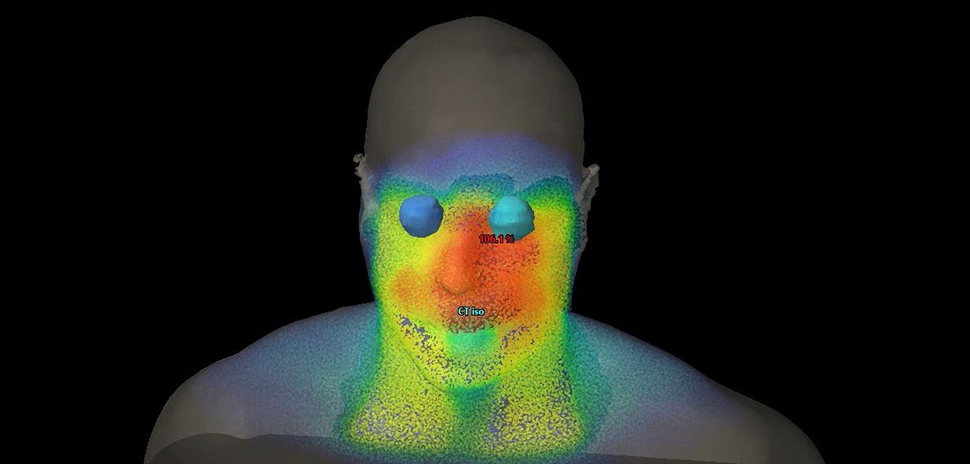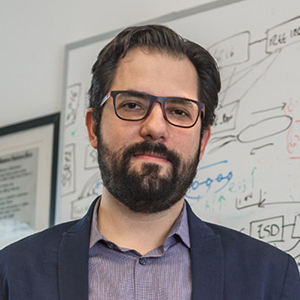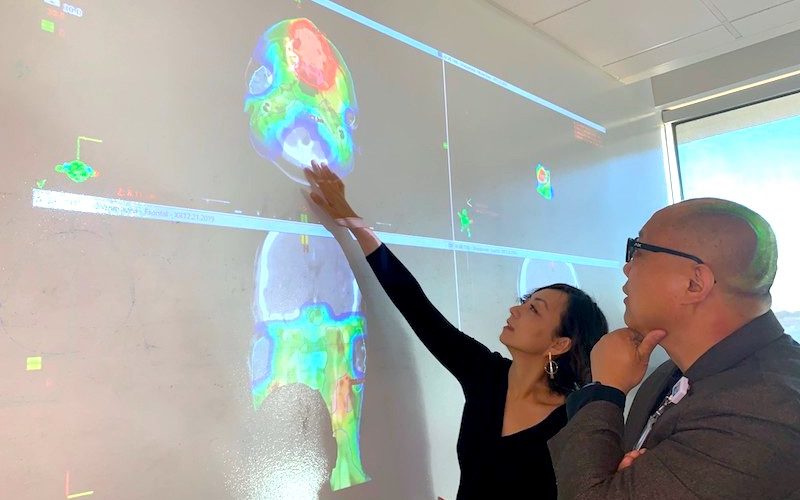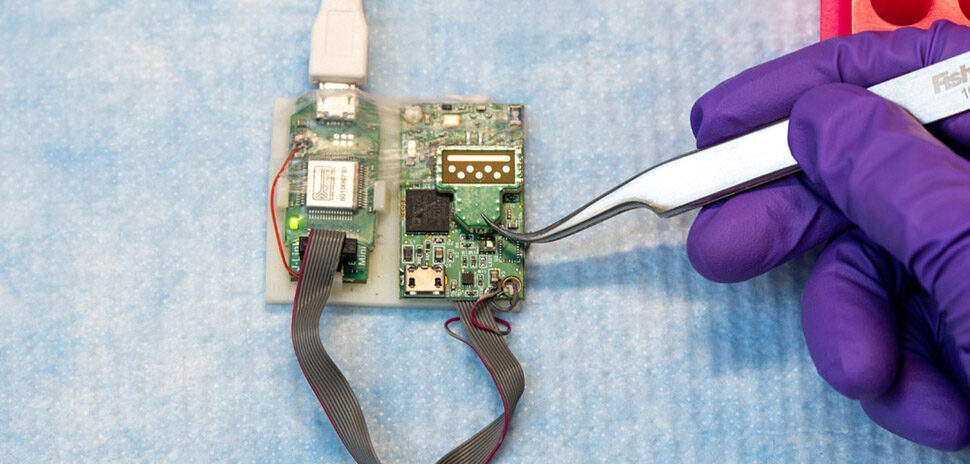![]() Every week, we do a little research of our own. We’re looking for scientists, professors, engineers, entrepreneurs—anybody, really—engaging in research and development across North Texas.
Every week, we do a little research of our own. We’re looking for scientists, professors, engineers, entrepreneurs—anybody, really—engaging in research and development across North Texas.
There’s plenty of good work being done. If you want to put R&D under your microscope, sign up for our e-newsletter.
UTSW team uses AI to streamline radiation therapy
A team from UT Southwestern Medical Center in Dallas is using artificial intelligence to improve facets of radiation therapy in the fight against cancer.
Patients often wait several days or even a week to begin therapy while doctors manually develop treatment plans. But, AI may be able to help cancer patients start their radiation therapy sooner—decreasing the odds of the cancer spreading—by instantly translating complex clinical data into an optimal plan of attack, according to a statement.
The new research by a team led by Steve Jiang shows how enhanced deep-learning models trimmed the process down to a fraction of a second.

Scientists trained AI to instantly generate 3D renderings of how best to distribute radiation therapy to cancer patients. The technology could allow patients to start treatment sooner, decreasing the odds of the cancer spreading. [Image: Courtesy UT Southwestern]
“Some of these patients need radiation therapy immediately, but doctors often have to tell them to go home and wait,” Jiang, who directs UT Southwestern’s Medical Artificial Intelligence and Automation (MAIA) Lab, said in a statement. “Achieving optimal treatment plans in near real time is important and part of our broader mission to use AI to improve all aspects of cancer care.”
Radiation therapy is a common form of cancer treatment, which uses high radiation beams to destroy cancer cells and shrink tumors. According to a statement, previous research reveals that delaying the therapy by even a week can increase the chance of some cancers either recurring or spreading by 12 to 14 percent.
READ NEXT UTA Team to Examine ‘Space Weather,’ UTD Research Focuses on Chronic Pain
UTD prof uses $2.7M in grants for protein research
Aided by two federal grants totaling $2.7 million, a University of Texas at Dallas scientist is working on developing a better understanding and possibly exploiting the role of protein evolution and interactions in human health and disease.

Faruck Morcos [Photo: Courtesy UTD]
Faruck Morcos, assistant professor of biological sciences in UTD’s School of Natural Sciences and Mathematics, received a $1.9 million Maximizing Investigators’ Research Award for Early Stage Investigators from the National Institute of General Medical Sciences, a component of the National Institutes of Health (NIH).
Morcos also received a National Science Foundation Faculty Early Career Development (CAREER) Award, providing him with more than $855,000 in funding over five years. Both grants support his research on how proteins and RNA can change due to mutations and still maintain functional roles.
According to a statement, the support from the NIH facilitates investigations of a variety of model systems and their potential biomedical applications.
The grant from the NSF grant also has an educational outreach component and is aimed at building models of protein evolution.

DART provides bus and light rail service in a 13-city service area. [Photo: Lance Murray]
DART receives federal grant for fight against human trafficking
Dallas Area Rapid Transit plans to help research and fight human trafficking after receiving a $49,600 grant from the Federal Transit Administration.
DART is among 24 organizations receiving funding for projects to prevent human trafficking and other crimes that can be present on public transportation systems. DART and four other public transportation agencies are among the recipients.
“Since 2013, when we became one of the original transit agencies to sign the U.S. Department of Transportation’s Transportation Leaders Against Human Trafficking pledge, DART has worked to spearhead local awareness efforts on human trafficking,” DART president and executive director Gary Thomas said in a statement.
NBCDFW reported that the administration’s Human Trafficking Awareness and Public Safety Initiative supports the Department of Transportation’s Transportation Leaders Against Human Trafficking pledge through transit-focused industry engagement, education, public awareness and outreach, research, and technical assistance to help fight human trafficking in transit.
“As one of the first transit agencies to provide training to spot indicators of human trafficking and how to report it to every employee, DART knows the importance of these programs,” Thomas said. “This funding provides us the opportunity to expand our public awareness efforts, provide training and education, and raise awareness among the traveling public along with the other members of our regional coalition of North Texas transportation entities.”
![]()
Get on the list.
Dallas Innovates, every day.
Sign up to keep your eye on what’s new and next in Dallas-Fort Worth, every day.































